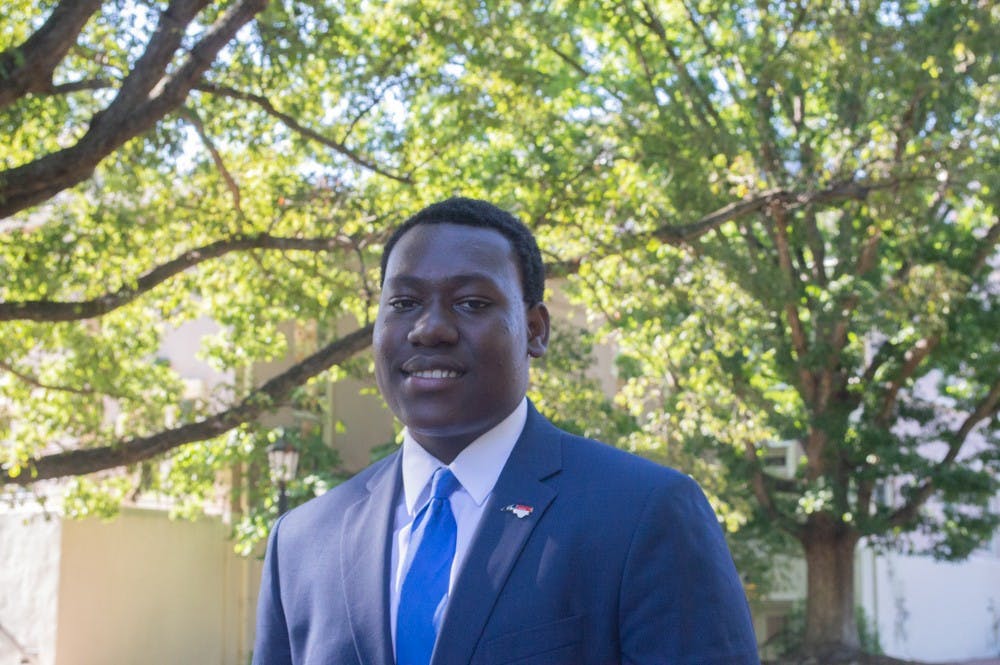"What about Obama?" This question is commonly used to dismiss the reality of systemic racism in America. Although there are numerous reasons this question is flawed, there may be a point there. If there really is pervasive institutional racial bias in America, how could Barack Obama become president of the United States? Before you exit the browser, this isn’t a commentary on Obama’s biracial privilege; this is about the Black privilege that we don’t talk about. It’s about the nuance between African descendants of recent immigrants, like myself, and long-standing African descendants who have struggled in America for five centuries.
As a Black man in America, I was taught at a young age that my skin color has historical disadvantages that threaten my ability to learn, work and breathe. Fortunately, I did not notice that threat until recently, which makes me wonder, was I too hopeful or naive to acknowledge it? For much of my childhood, I can’t recall feeling directly targeted because of my skin color. It’s not as if I grew up in a highly inclusive environment; I was born in eastern North Carolina, only a couple of hours away from where Black students were harassed for eating at a whites-only lunch counter just 60 years ago. But despite my community’s racist history, I can’t recall being turned down an opportunity because of my skin. In fact, people seemed to embrace me because I was Black. They wanted the “diversity” of a Black friend, a Black leader or a Black Republican.
I also suspect one reason for my disconnect in experiencing racism was because of my recent African ancestry. However, my fortunate reality that many recent African immigrants share has not eroded the oppressive reality of some of my Black friends who are long-standing African descendants. Many faced deep socioeconomic adversity and didn’t have the resources for SAT prep or a math tutor like I did. When you see a Black guy at a party, you can’t see this nuance. However, this nuance enables me to overlook and overcome most systemic racism because of my immense privilege at home.
There is a ubiquitous inequity between the experiences of recent and long-standing African descendants. Unfortunately, there is a lack of data that relays this gap. The U.S. Census Bureau and most research institutions lump these groups under the same umbrella as “Black or African American,” making it extremely difficult to recognize this nuance. However, I urge you to use your personal life as an anecdotal, observational study. Think about the backgrounds of your Black friends here at UNC. What’s the ratio of recent to long-standing African descendants?
Many of the Black leaders in business, medicine, engineering and every conceivable field are recent descendants of African immigrants who arrived in America in the past 70 years. Barack Obama is a prime example. Obama Sr. migrated to the U.S. in the 1950s. Even though he tragically died when Barack was in college, Barack grew up with his grandmother and grandfather, learning similar principles that are at the core of many African cultures: tenacity, humility, collectivism and reverence for God. These precepts have fostered many recent descendants to become managing directors at Goldman Sachs, professors at Harvard and, yes, president of the United States. However, these recent descendants escaped 400 years of slavery and the harshest imposition of Jim Crow at the cusp of the 20th century.
While society praises the inclusion and Black diversity growth of board rooms, government and classrooms, it is vital to examine where these Black people come from. In reality, many descendants of the long-standing generations remain at the bottom of the socioeconomic ladder. The great-great-grandson of the enslaved servant may not have access to many of the same privileges and opportunities, yet the son of the recent Nigerian immigrant earns offers from America’s best universities. Also, since he’s Black, he gets an edge in job recruiting, even though that edge is designed for the great-great-grandson of the enslaved servant.
Both descendants mentioned are Black. But one can capitalize on his Blackness in an increasingly integrated society while the other still awaits his opportunity. The recent descendant is not entitled to opportunity any more than the long-standing descendant. In fact, we as recent descendants should be thanking the ancestry of the long-standing for revolting, marching and dying for freedom. Their ancestry gives us the opportunity to capitalize on our Blackness. This means we are not just obligated to encourage more Black people to rise with us. We must ensure that Black people who are long-standing descendants are equipped with the same edge we use to compete.
In this time of unrest and immense anger towards the institutions that have caused overwhelming pain to Black people in this country, we must take a moment to acknowledge the privilege that descendants of recent African immigrants have over those who have been here for centuries. We must adjust our “diversity” initiatives to take this important distinction into account because recent descendants do not have to face the same generational trauma that long-standing descendants experience every day. All Black people experience racism in America, but descendants of recent African immigrants may not always face the systemic injustice long-standing descendants do.
Cognizance of this nuance will enable us to better reform the historical and ongoing inequities that have plagued the Black American experience. All Black lives matter, but there is a subset of Black lives that are being unfairly disadvantaged throughout society. Please spread the word.



